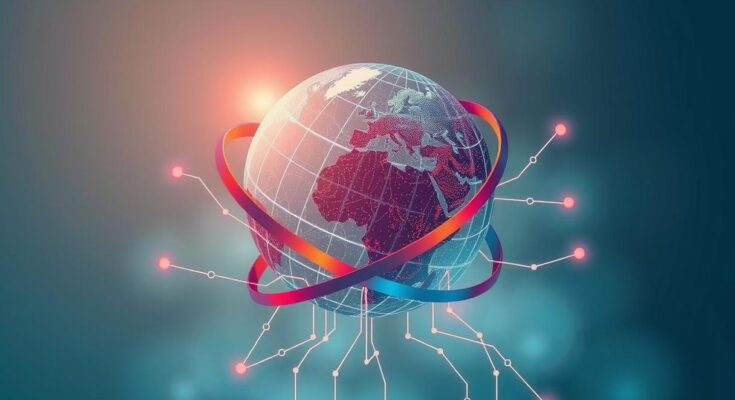Digital Access as a Human Right
In today’s digital age, internet access is crucial, intertwined with fundamental rights, especially freedom of expression. Government-enforced internet shutdowns often claim national security as a guise, significantly disrupting lives and eroding core human rights. The July uprising in Bangladesh starkly revealed the devastating effects of such blackouts, underscoring the necessity to recognize internet access as an inherent human right.
The Impact of Internet Shutdowns
A report by the UN Human Rights Office highlights that government-imposed internet disruptions are not just technical inconveniences; they systematically violate human rights and disturb everyday living. This past July and August, a student-led protest morphed into a mass uprising, illustrating how these shutdowns can obliterate fundamental rights. For instance, a nationwide blackout in Bangladesh lasted over 150 hours, curtailing communication, information access, and the reporting of human rights violations, all justified under spurious security concerns.
International Recognition of Internet Rights
The United Nations Human Rights Council has affirmed that “the same rights people have offline must also be protected online.” Countries like Estonia and Finland have recognized internet access as a legal right, paving the way for a global acknowledgment of this essential need. The UNHRC special rapporteur clearly states that cutting off internet access breaches international law and lacks justification.
Legal Framework in Bangladesh
Bangladesh’s Constitution guarantees freedom of expression and access to information. However, the government’s internet blackouts infringe upon these rights, impacting vital areas like education and healthcare. The government’s actions have not only violated constitutional promises but also breached international commitments, illustrating an urgent need for reform in governance regarding internet access.
The Broader Implications of Shutdowns
Internet shutdowns disrupt every aspect of life, including education, work, and health. They hinder journalism and accountability while obliterating vital access to information during crises. Globally, these tactics silence dissent; countries like Brazil, India, and Pakistan have experienced similar shutdowns as a means of control. In Bangladesh, these justifications under the guise of national security only obscure the true intention to stifle opposition and control the narrative.
The Call for Constitutional Change
Recognizing internet access as a fundamental right in Bangladesh’s Constitution would align the country with international standards. Policymakers should enact laws that ensure equitable internet governance. Protecting digital access is essential for safeguarding freedom of expression, education, and other indispensable rights, thereby fostering democratic engagement and development in Bangladesh.
The Path Forward
As Bangladesh moves forward, uninterrupted internet access should be a priority to uphold human rights commitments. The urgency for change is clear—it’s time to embrace the internet as an empowering force, ensuring it becomes a crucial aspect of democracy and human rights. The lessons learned from the July uprising must drive proactive measures to prevent future violations and safeguard this vital resource.
– Internet access is essential for freedom of expression and daily life. – UN reports highlight that shutdowns violate human rights. – Countries like Estonia and Finland affirm it as a legal right. – Shutdowns hinder education, work, and healthcare. – Bangladesh must recognize this access as a constitutional right to align with global standards.
In summary, recognizing internet access as a fundamental human right is crucial for safeguarding freedoms and upholding democratic principles in Bangladesh. The precedent set by nations like Estonia and Finland illustrates the way forward. By ensuring that internet access is enshrined in the Constitution, Bangladesh can protect its citizens’ rights to information, expression, and development in the digital age.
Original Source: www.newagebd.net



